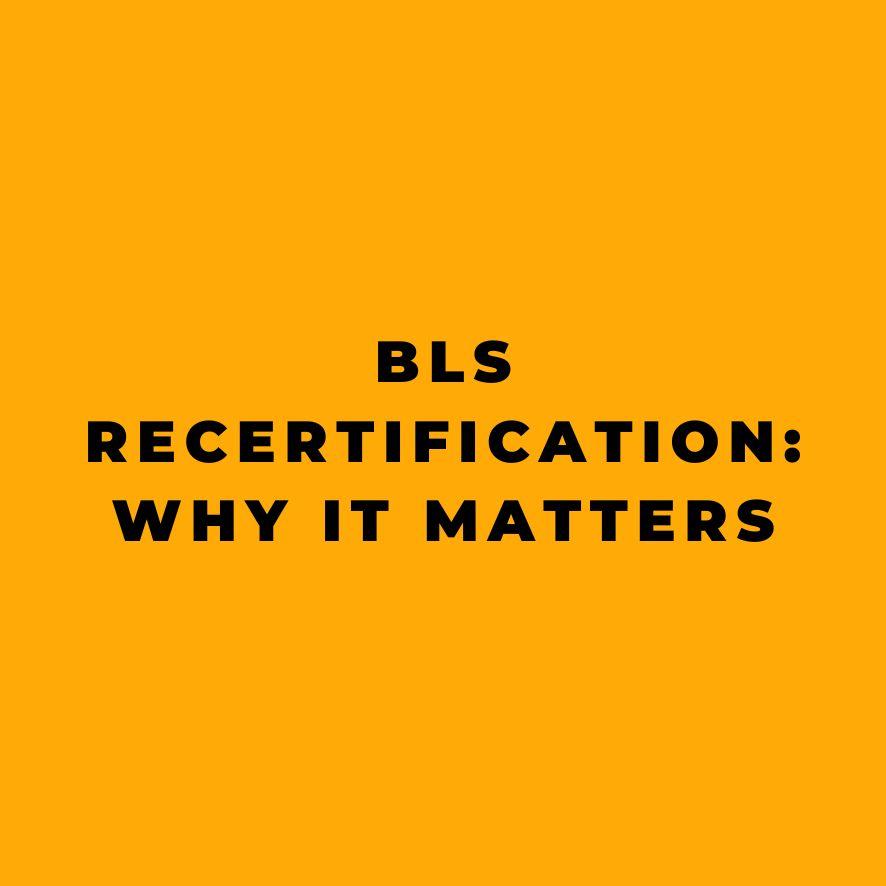Basic Life Support (BLS) recertification is a crucial aspect of healthcare that often goes underappreciated. BLS training equips individuals with essential life-saving skills such as CPR, using AEDs, and basic airway management. These skills are vital in responding to emergencies like cardiac arrests, choking incidents, and drowning accidents. In this comprehensive article, we will delve into the importance of BLS recertification, the renewal process, and why it matters for healthcare providers and the community.
BLS Certification Basics: Who Needs It, How to Get It, and How Often It Should Be Renewed
BLS certification is a mandatory requirement for healthcare providers, first responders, and medical professionals. It covers a wide range of topics, including CPR for adults, children, and infants, the use of AEDs, and relieving foreign body airway obstruction. Healthcare professionals such as emergency medical technicians, physicians, registered nurses, dentists, pharmacists, and other medical staff are typically required to be certified in BLS. The certification ensures that they are equipped with the necessary skills and knowledge to respond effectively in emergency situations.
Renewal and Continued Education
BLS training courses typically require participants to renew their certification every two years. This renewal process is essential to ensure that healthcare providers stay updated with the latest guidelines and techniques in emergency care. The dynamic nature of healthcare demands continuous learning and skill enhancement to provide the best possible care. BLS recertification offers opportunities for individuals to expand their knowledge and improve their life-saving techniques, ultimately contributing to better patient outcomes.
BLS Certification Training Benefits For The Community
BLS certification training not only benefits healthcare providers but also has a significant impact on the community. In emergencies such as cardiac arrests or choking incidents, immediate intervention can make the difference between life and death. BLS-certified individuals within the community can provide crucial assistance while waiting for professional medical help to arrive. By training more community members in BLS, the overall survival rates in emergency situations can be improved, creating better outcomes for those in need of immediate medical attention.
Importance of BLS Renewal and How to Ensure You Stay Prepared
The renewal of BLS certifications is mandatory every 24 months to guarantee the retention of critical life-saving skills and knowledge. Healthcare providers must ensure that their BLS certification is up to date to continue contributing effectively to emergency care. When preparing for BLS renewal, individuals should seek reputable organizations that offer high-quality training based on the latest best practices and guidelines. Choosing a reputable organization ensures that the certification is widely recognized and accepted by employers and regulatory bodies, providing confidence in the skills and knowledge acquired.
Common Mistakes and Tips for BLS Renewal Courses
During BLS and CPR training courses, individuals may make common mistakes that could affect their ability to respond effectively in emergency situations. Some of these mistakes include improper hand placement during CPR, inadequate compression depth, and hesitation to initiate CPR. To prepare for BLS renewal, participants should focus on practical hands-on practice, review the latest guidelines, and seek feedback from instructors to ensure they are performing techniques correctly. Additionally, staying updated with changes in protocols and guidelines is crucial to maintaining competence in life-saving skills.
Online vs. Offline BLS Training
Healthcare practitioners can renew their BLS certification either virtually or in-person, depending on the certifying institution. Online BLS recertification offers the convenience of completing the course at one’s own pace and in a familiar environment. It also ensures that individuals do not compromise the quality of training, as reputable organizations offer high-quality online resources based on the latest best practices. However, it is important to ensure that the online certification is widely accepted by employers and regulatory bodies. Consulting with employers or organizations for specific demands is recommended to guarantee acceptance of the certification.
Conclusion
In conclusion, BLS recertification is a critical aspect of ensuring that healthcare providers are prepared to respond effectively to emergencies. The renewal process provides opportunities for individuals to enhance their knowledge and skills in life-saving techniques, ultimately benefiting both the healthcare providers and the community. By staying updated with the latest guidelines and techniques, healthcare professionals can contribute to improved patient outcomes and overall survival rates in emergency situations. Therefore, the importance of BLS recertification cannot be overstated, and it is essential for healthcare providers to prioritize the renewal of their BLS certification to continue providing high-quality emergency care.










